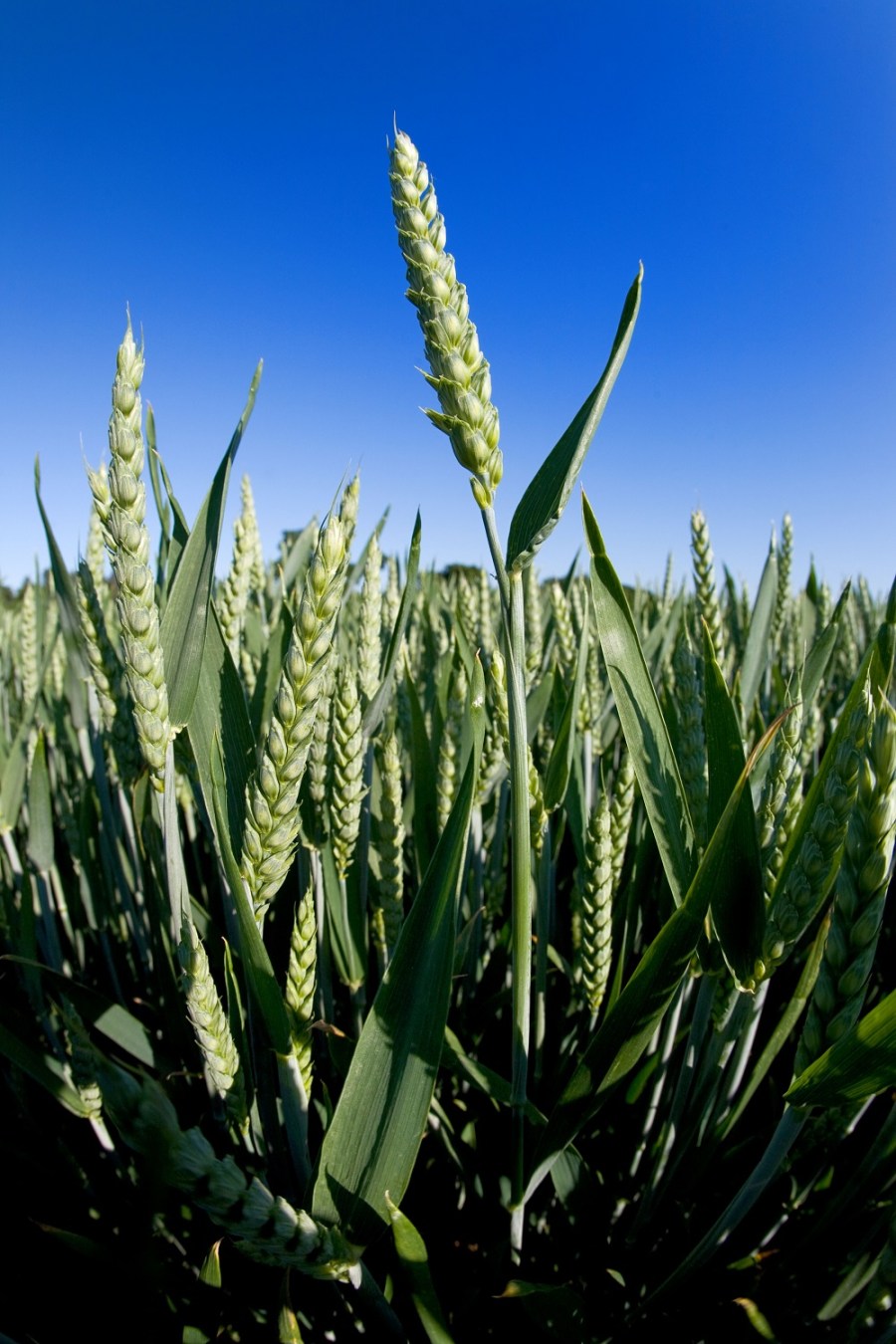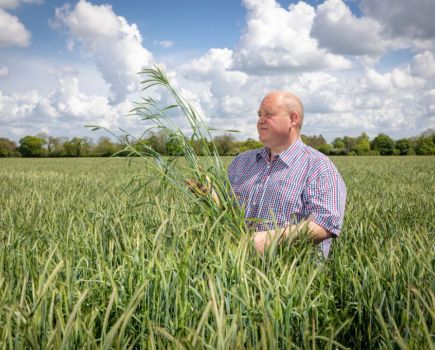Progressive farmers are set to play a key role in introducing innovations with the goal being to eliminate world hunger. CPM reports from the launch of Rothamsted Research’s five-year vision.
Here in the UK, we are at the forefront of innovation.
By Tom Allen-Stevens
Just under one hundred new wheat pre-breeding lines, some containing novel traits never seen before on UK farms, will be delivered by scientists to commercial breeders every year for the next five years.
They’ll be fully genotyped, come with comprehensive performance data and will be completely free of intellectual property (IP) restrictions. Back-crossed into commercial breeding lines, the aims are to open up unprecedented genetic diversity in the UK wheat gene pool, introduce a new generation of varieties, and unlock a sizeable step-up in yield, resilience and quality characteristics.
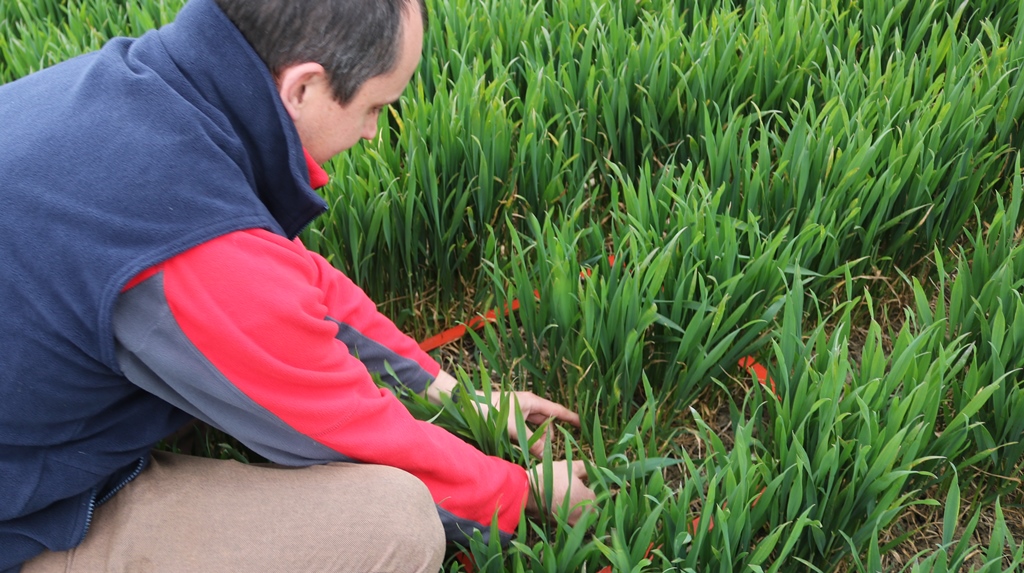
Related News: UK farmers could lead the world in innovation
This is just one of a string of pledges made earlier this month by Rothamsted Research as it launched its new five-year vision. These are underpinned by a new investment from BBSRC of £50.9M and will see Rothamsted working with other research institutes to deliver five strategic research programmes for the benefit of farmers.
“Our purpose is to bring together global science and innovation to benefit farmers and communities worldwide, to secure food production and to protect the environment,” says Prof Achim Dobermann, Rothamsted director and chief executive.
He introduced the institute’s three big science portfolios: Superior Crops, Securing Productivity and Future Agri-Food Systems.
Under Superior Crops, research programmes aim to develop plants with key genetic traits tailored to their cultivation, environment and potential nutritional and industrial value as products.
Rothamsted’s science portfolios and research challenges

Great opportunity
One example is the science that has already successfully crafted Camelina plants to mimic the nutrient-producing potential of algae, creating the opportunity for crops rich in long chain omega-3 fatty acids, or fish oils. “One tonne of fish oil costs $2000 but a tonne of vegetable oil costs just $800 – that’s a great opportunity,” notes project leader Prof Jonathan Napier.
Securing Productivity is about finding smarter ways to control pests, pathogens and weeds more efficiently and sustainably. Rothamsted scientists are hunting for genetic fixes to enable crops to look after themselves better and also for natural microbes to act as allies.
In another branch of the portfolio, agronomists and ecologists are working together to exploit ecosystem services. They’re investigating to what level pest control offered by ladybirds and pollination services provided by bees, for example, can replace agriculture’s technological innovations, such as chemical sprays.
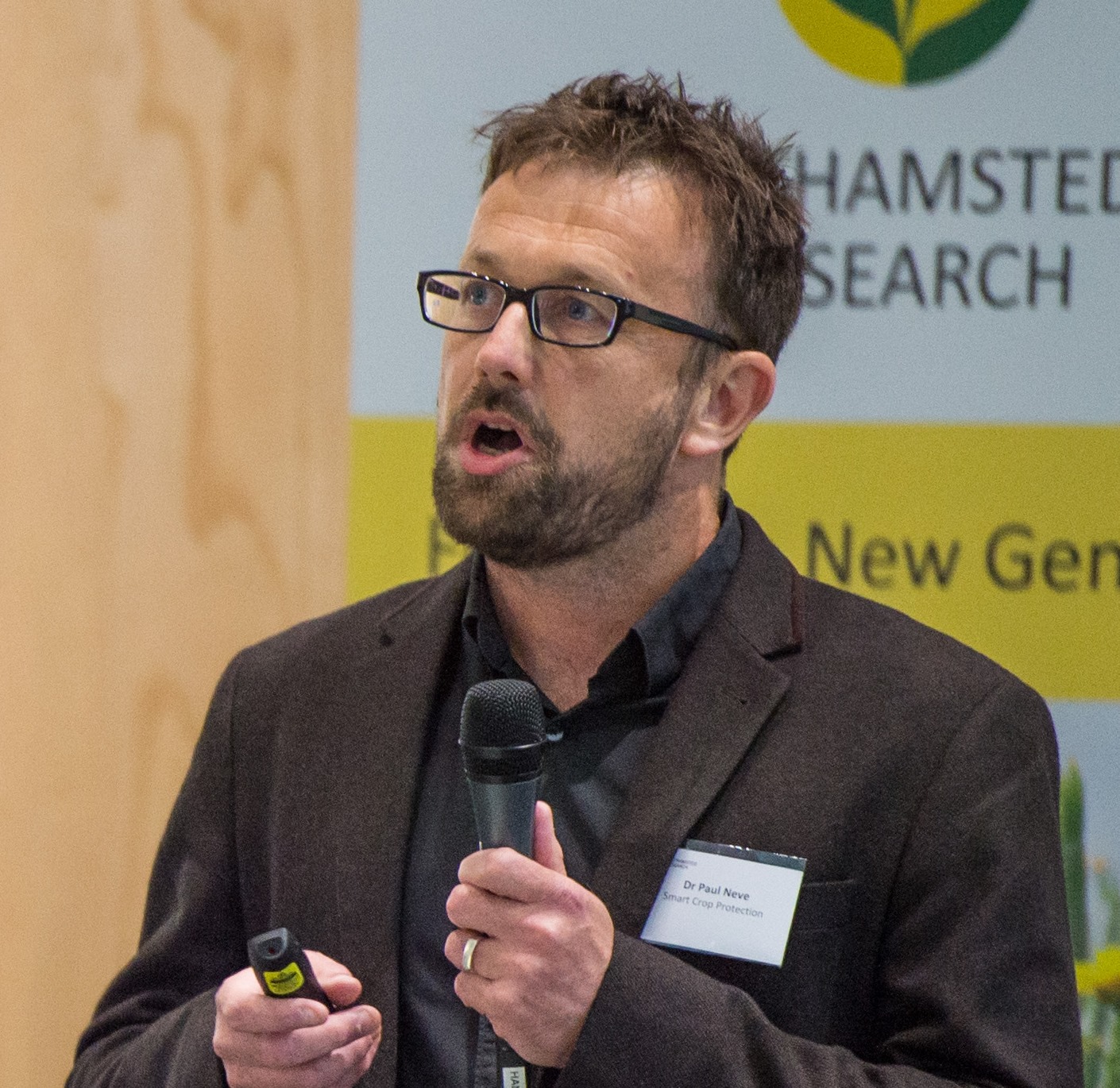 “We don’t want to rely on a single intervention – the so-called silver bullet,” says weed biologist Dr Paul Neve. “We’re using genomic, chemical and environmental elements to influence plant and pest interaction.”
“We don’t want to rely on a single intervention – the so-called silver bullet,” says weed biologist Dr Paul Neve. “We’re using genomic, chemical and environmental elements to influence plant and pest interaction.”
The third portfolio, Future Agri-Food Systems, is about making both arable and livestock farming more efficient and productive. The associated research programmes are also exploring ways of improving soil health and structure, of enhancing biodiversity, of reducing carbon footprints, and of raising the nutritional quality of produce.
Six bigger challenges
The three science portfolios address six bigger challenges (see panel, above), explains Achim Dobermann. “In the UK, crop productivity is challenged by increasing biotic threats to plant and animal health, by resistance to agrochemicals, by poor soil health, and by a slow rate of increase in yield and profitability.”
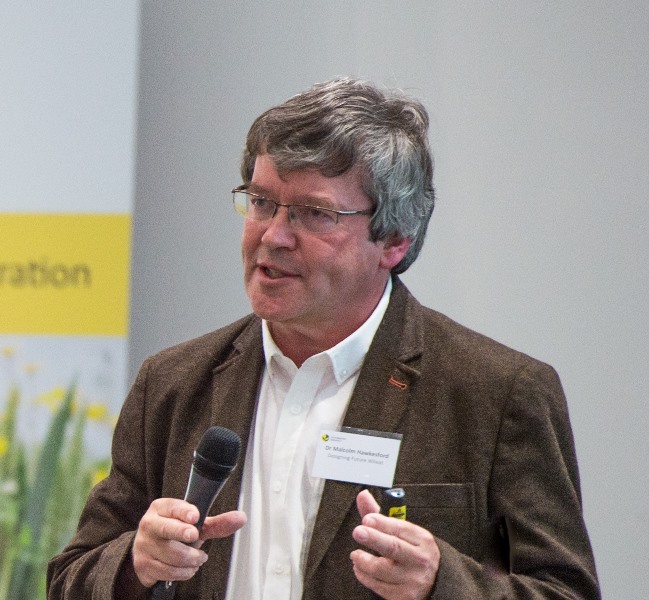 The yield plateau (Challenge 1) is addressed through Designing Future Wheat – a national collaborative wheat research programme, explains research lead Dr Malcolm Hawkesford. “It involves Rothamsted working with John Innes Centre, Earlham Institute, Institute of Food Research, University of Bristol, EBI, NIAB and University of Nottingham. We’re developing and screening novel wheat germplasm for the next generation of key traits which will underpin sustainable and productive agriculture.”
The yield plateau (Challenge 1) is addressed through Designing Future Wheat – a national collaborative wheat research programme, explains research lead Dr Malcolm Hawkesford. “It involves Rothamsted working with John Innes Centre, Earlham Institute, Institute of Food Research, University of Bristol, EBI, NIAB and University of Nottingham. We’re developing and screening novel wheat germplasm for the next generation of key traits which will underpin sustainable and productive agriculture.”
With £24M of BBSRC funding, topped up from other sources, the pre-breeding programme brings into the wheat gene pool traits and novel qualities from wheat relatives such as wild goat grass, and germplasm a commercial breeder simply wouldn’t have the resources to screen, he says.
It’s a step on from Rothamsted’s 20:20 programme that incorporated projects such as WISP, Wheat Improvement Strategic Programme. The aim of 20:20 was to deliver wheat with a yield potential of 20t/ha within 20 years. “The difference now is that we’re looking at quality aspects and efficiency too. It’s a programme strongly focused on germplasm diversity,” explains Malcolm Hawkesford.
Wild material
“But one of the problems of doing this is that you’re dealing with wild races and landraces that are very difficult to work with. We’ve looked at the wild material and done the analysis. The lines we pass to commercial breeders are all fully genotyped so they know the genetic markers – it’s a toolkit, rather than just a bag of seeds we’re handing over.” The first 96 pre-breeding lines were supplied last year with the programme on track to deliver a similar number each year to breeders.
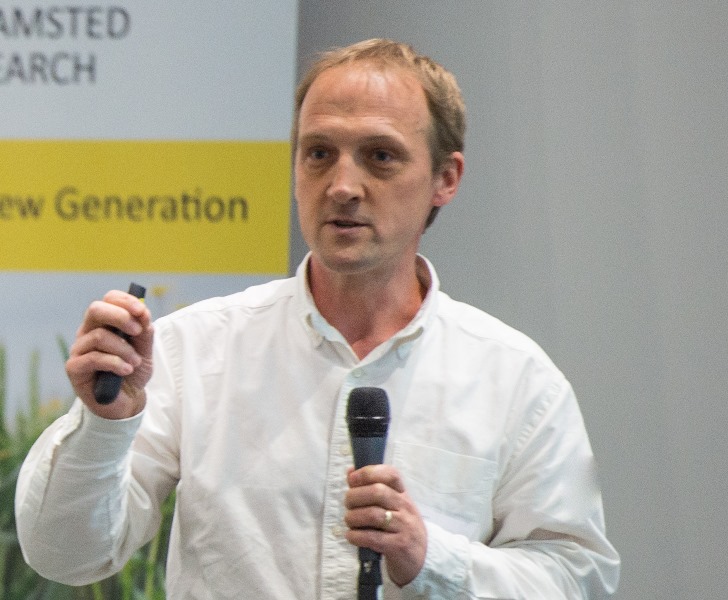 Achieving Agricultural Sustainable Systems (ASSIST), a collaborative programme of research led by Rothamsted Research and the Centre for Ecology and Hydrology (CEH), addresses Challenge 4. ASSIST essentially seeks to take integrated crop management one step further, explains Dr Jonathan Storkey.
Achieving Agricultural Sustainable Systems (ASSIST), a collaborative programme of research led by Rothamsted Research and the Centre for Ecology and Hydrology (CEH), addresses Challenge 4. ASSIST essentially seeks to take integrated crop management one step further, explains Dr Jonathan Storkey.
“We’re looking to weave the environment into increased production – the aim is to integrate natural capital and biodiversity into cropping systems.”
Researchers have developed an app that will be launched later this year and allow farmers to enter yields for individual fields direct onto a centrally stored map. “It’ll build into a large database so farmers will be able to benchmark performance and we can use the aggregated data to understand the variation in yields.”
Network of farms
A network of 25 farms will be set up to explore this variation in more detail. Different levels of in-field biodiversity will be analysed on these farms. “We want to investigate how we can get increased crop benefits from field margins, for example. What’s new is that we’re quantifying the benefits.”
Senior researchers involved in the Rothamsted projects will be available at Cereals on stand 921 where there’ll be more information about research projects currently underway.

